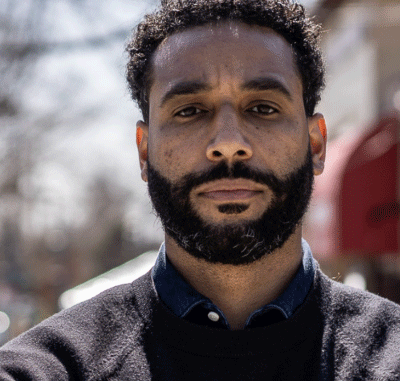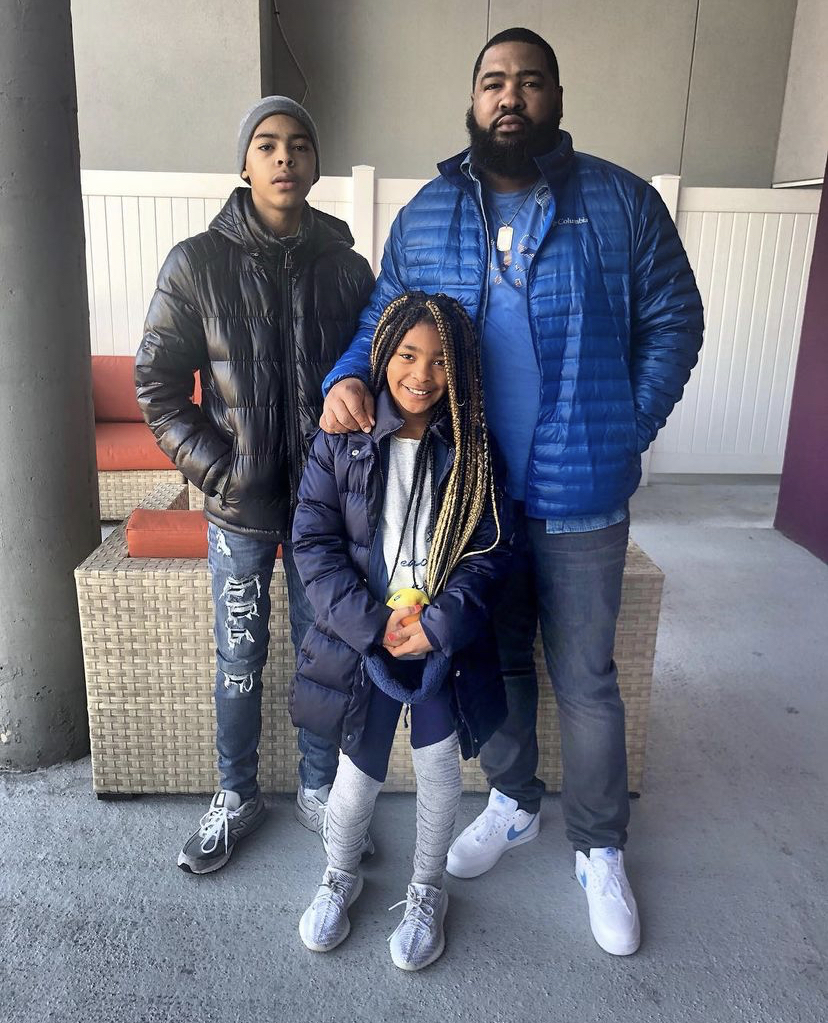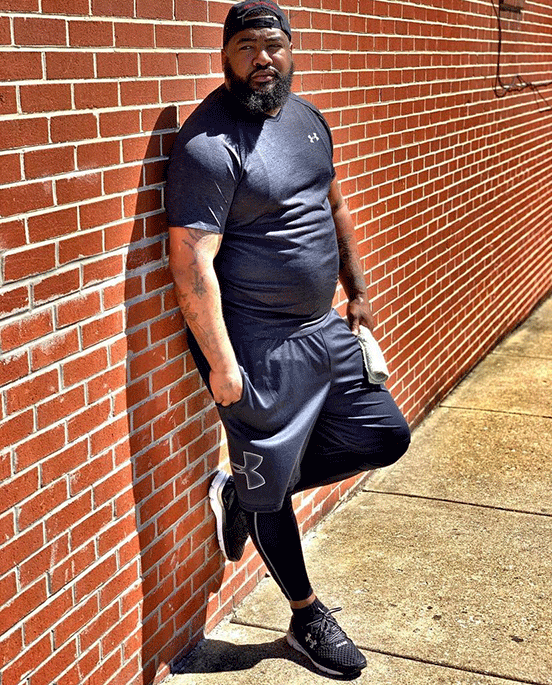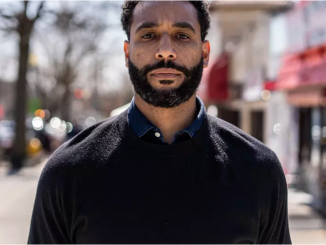
By Ryan Jones, Esq.
I’m writing this moments after one of my Hargrave Military Academy teammates sent me a Baltimore Sun article which detailed and outlined the cause of our other teammate’s death. Gerald Brown is our teammate that suffered the devasting result of a system with a ruthless design. He was a phenomenal talent, father, brother, son, and someone who lifted the spirits of his community through activism and a God-given talent for delivering the perfectly timed one-liner. His basketball accolades are etched in history, and his impact on Baltimore endures.
The last time I saw GB was two weeks prior to his unfortunate death, while watching his son J’lin play an AAU game in PG County, MD. We spoke about GB’s plans, and me coming to visit him to discuss certain Baltimore neighborhoods primed for development. He mentioned wanting to hang out in DC more. He also mentioned that his dad, Gerald Brown Sr., was focused on finding J’lin a good high school to hone his developing athletic skills and draw the interest of college scouts. After all the animated and focused conversation, I rushed off to another event, forgetting I wanted to take a picture with him. But I brushed it off knowing I was going to see him in a week or so.
But, Gerald FaceTimed me, to discuss my coming to visit him in Baltimore, a few days after seeing him. We had to push back our visit because he unexpectedly had to drive J’lin and some of his teammates to a tournament in New Jersey; so we settled on a date that would fall after my trip to Montreal for another friend’s bachelor party. But, on June 8th, 2019, mid bachelor party celebration, the same teammate who sent me the recent Baltimore Sun article sent me a text with an Instagram post captioned “rip Gerald Brown” while inquiring if this was true. I sat there stunned and hurt—and I can’t say that I’ve fully recovered yet. But based on that Baltimore Sun article, I at least have some deeper understanding of how it is that someone chose to murder my friend, a 34 year-old man, a father of three, who was ever-present in his children’s lives while trying to be a positive influence. I now know the War on Drugs caused his death–directly. Not a byproduct.
Gerald was what Baltimore is, which in part is the tragic result of a culmination of policies failing to achieve their respective purposes. And the only thing The War on Drugs has achieved is a war on people of color. It has not come remotely close to stopping drug trafficking or remediating the public health crisis as a result of using those drugs it is charged with preventing from hitting the streets. But why was Gerald subject to this? Once he put the ball down, he embraced the environment that raised him, and apparently, he relied on the resources accessible to him.
Remember that HBO series, The Wire? GB related to those characters, and to that life, all too well. I digress but how many more shows like Snowfall or Breaking Bad do we need to understand that the life is admired and enticing, while being incredibly entertaining. Too many have come to admire Scarface and appreciate Training Day as those films depict a reality which is too harsh, but we’ve become too numb to it.
“The War On Drugs” has been an embarrassingly painful failure for several reasons, many of which have nothing to do with the death of black people, but especially because of those deaths. From the drugs themselves or the guns violence resulting from the trade.
If the goal was to stop the trafficking of illicit substances, and to ensure public safety, we should have reevaluated the efficacy of the War’s strategy long ago. It’s so bad that you almost have to conclude the results we continue to see are desired. We have people still getting high, still overdosing, still contracting deadly illness from the use of the drugs, still resorting to drugs to combat their issues, and no shortage of the products mostly. We still have merchants taking their chances to make a profit, and protecting that lifestyle in order to thrive. And what has been the end result? People of color are disproportionately incarcerated (not to mention the crack to cocaine sentencing disparity) and addicted to poison. And gun violence is the omnipotent regulator of this illicit and unregulated industry. Here’s the kicker, one is less likely to face prison time from killing a black person, than being found guilty of drug related offenses. But BLACK LIVES MATTER.
Pouring more money into policing and the courts is failing to cure the streets. It’s a miserable idea. Not to mention that in many instances we see those who are tasked with policing the illicit drug industry end up finding ways to profit from it. Some will call it corruption, others know it as business as usual.

This structural design is causing too much and unnecessary loss. The good news is that we can solve this problem. Gerald Brown’s children should still have him. These young people know exactly what the consequences are, but many do not fear the prison system enough to prevent them from taking risky chances.
We still discuss and lament the limited options available for our youth to explore and find a real chance at “advancement” in this country, while growing up in certain communities. The drug game is so enticing, yet the “War On Drugs” is so efficient at the suppression and oppression people of color. If you believe “Black Lives Matter,” then this is the call to action you must incorporate.
If it were legal to sell Schedule I drugs, as we’re seeing in some states, and those salesmen were taxed and regulated for safety; and, the retailers and consumers were educated on safety, and the police and the courts were involved as a means to stop robberies, counterfeiting and fraudulent activity, perhaps we could inaugurate a future where our society starts to heal from the scourge of gun violence because we’d be executing a plan actually aimed at fixing the problem’s cause. Call me crazy, or tell me how it won’t work, or that it will lead to a slippery slope of other issues; but be sure to tell yourself we’re living in the failed construct that is the War On Drugs, which has resulted in the weaknesses you may accuse of my theory. Gun violence is such a prevalent tool in black communities because many deaths go unsolved, which in turn encourages the gun violence so closely related to the drug game. We must change it, or we will keep seeing that same results.
From that Baltimore Sun article, I instinctually felt that this was caused by the War on Drugs or the culture, in Gerald’s case. Accepting the reality as is, the “but for” cause of decisions made from a selection of limited options. That’s when you conclude the War on Drugs did this.
Some of us know the culture and how it works, but the failures of our people are adding up exponentially. By the way, all of you “just don’t break the law” folks are just as problematic. Each law is manmade, and all laws can be rewritten. The intense lack of understanding and glaring ignorance of the volume of issues is stifling to progress.
If this currently illegal industry were regulated, and those who pursue the drug game as a profession were brought from the “margins of society” into the mainstream functioning of banking, taxation, legislation, lobbying, and trade, perhaps my friend Gerald Brown would still be here today as a meaningful contributor to society and, more importantly, as a present father to his children. As things stand today, too often the desire to overcome the despair many face outweighs the fear of the consequences of their examined choices.
I’ve got a vision of what could be. In that vision, Gerald Brown would be here, and he’d be concerned with making overhead, paying employees and protecting their benefits, and preventing his competition from stealing his intellectual property, like trade secrets. Or infringing on his trademarks. We would not live in fear of gun violence from conducting business, knowing that legitimate non-violent options for recourse exist against bad actors Then the value of education becomes more important, and meaningful. Then others who come from places in Baltimore like Gerald would know that the most sustainable means to contest a dispute and protect their legitimate business interests would be in a court of law with the blind scales of justice; not street justice.
The loss of life is too concentrated in certain socio-economic, ethnic and racial demographics for this epidemic not to be addressed right now. Each day that goes by without progress on this issue is a failure of gigantic proportions for every sitting lawmaker. We must not be trapped into the thinking of old, because it is not working for today. Without a doubt, the War on Drugs killed Gerald Brown. The culture must heal, and the culture must shift. The same money we pour into law enforcement (where we’ve articulated it actually supports known corruption) should be invested in other resources—or else “equity” is just a six-letter word. That’s real accountability. Progress requires action.
It is time to pay attention to this intergenerational contagion. The concept “bullets ain’t got no names” is being understood across cultures now. To be clear, I’m not just writing this article in an attempt to shift the way we think about the War on Drugs, or to cast a light on my friend. I’m taking action. Without a doubt, I know that altering our approach to the War will engender meaningful change across our communities, across the country….
You want people to trust the system? You want the pandemic to end? You want people to want to take a vaccine, so you can listen to music in close proximity to one another and break bread in restaurants in the company of family and friends? Then you must want to establish trust in communities, where they have historically been designed to fail the people. To do that it is imperative to redesign the system to empower those communities. Then watch us see value in black lives and find a deeper appreciation for each other. I see it! I want the dreams of our children immediately delivered from the cruel grip of hopelessness without the requirement of unique resilience to fight the environmental conditions our children had no hand in creating. I see a world where our little dreamers like Gerald’s son, J’lin, have a chance to succeed on their own because they’ve matured in communities where the conditions foster their success and belief in themselves. Can you see it?







